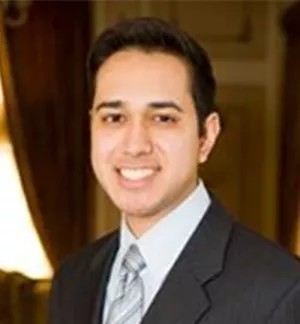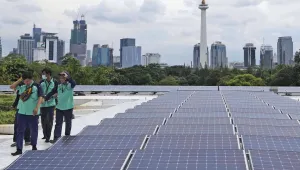Since taking office earlier this year, Prime Minister Narendra Modi has embarked on an aggressive campaign to court the Indian diaspora. From the United States to Australia, high-profile outreach to the community has featured prominently in virtually all of Modi’s visits abroad.
The courtship has proved successful. In New York City, approximately 20,000 euphoric NRIs from across North America sat spellbound in Madison Square Garden, listening to the new premier speak.
A similarly rapturous scene unfolded in Australia last month, as more than 21,000 NRIs flocked to Sydney’s Olympic Park to confer upon Modi a hero’s welcome. As in NYC, Modi deployed his trademark soaring oratory to invite the thousands assembled to become stakeholders in India’s future. The audience roared in approval and seemed to accept the call to action.
Sustained and substantive engagement with the diaspora has emerged as an integral component of Modi’s domestic and foreign policies. Domestically, Modi views the 25-million-member overseas community as a potent untapped force willing and able to fulfil his ambitious goals at home. During his address in NYC, Modi urged his audience to invest in modernising India’s ageing infrastructure and help finance the clean-up of the Ganga. He envisions a diaspora directly involved in advancing India’s development through their financial and intellectual capital.
The Indian diaspora constitutes an even more important variable in Modi’s foreign-policy calculus. Expatriates could provide him with powerful constituencies of support abroad, capable of influencing the policies of their adopted countries. Almost a decade ago, the Indian-American community played such a role, mobilising itself to help secure Congressional passage of the landmark civilian nuclear deal. Approval of the deal propelled US-India ties to new heights and showcased the potential of the community as a credible force affecting foreign policy. Its influence dissipated, however, in the absence of other issues potent enough to bind the community together.
But Modi’s desire to create bases of support abroad through the diaspora is also likely to be challenged by the fact that Indians living overseas are loyal first to their adopted countries. In cases where the interests of both countries align, no tension exists. But in instances where a potential conflict may arise, the diaspora’s utility to Modi will be limited. However, this simple truth is unlikely to affect Modi’s outreach to expatriates.
Modi’s deep engagement with the diaspora is unsurprising given the vast influence it exercised in his election. Scores of NRIs from around the world travelled to India to stump on behalf of Modi, while even more filled his campaign coffers with contributions from abroad. The election was the first in Indian history to allow expatriate citizens to vote, so long as they were willing to travel to India to cast their ballots. The diaspora’s role in helping secure Modi’s crushing electoral victory over the governing Congress was far-reaching and significant.
Although unsurprising, Modi’s outreach to Indians abroad is unprecedented. Jawaharlal Nehru viewed the diaspora as a distinct entity, unrelated to core Indian interests. This attitude persisted throughout much of India’s history, resulting in New Delhi limiting its engagement with the diaspora to humanitarian, legal and other narrow arenas. Modi’s campaign to forge a partnership with the NRI community represents a clear break from the policies of the past and underscores the value he places on the overseas community.
But what explains Modi’s popularity within the diaspora? He has effectively branded himself as a “man of action” from humble origins, capable of eradicating byzantine bureaucracies, endemic corruption and abject poverty. His vision has resonated with the millions who left India precisely for these reasons but have still maintained close ties with their motherland and want it to succeed.
The Indian premier has also proved adept at responding to the unique concerns of the overseas community. In both NYC and Sydney, Modi promised to simplify the rules for obtaining a visa to India, a source of profound frustration. Deafening applause greeted the announcement.
Modi engenders pride among the diaspora on a more visceral level. To many, his muscular rhetoric, decisive action and unapologetic ambitions represent the qualities India needs to achieve status as a world power.
Of course, not all overseas Indians view Modi favourably. He remains controversial and polarising, and will remain so throughout his tenure as prime minister. The same qualities that instil hope and pride in some expatriates instil fear and revulsion in others. Whether Modi will ever convert his critics overseas remains to be seen. But as the past few months have demonstrated, he has begun to fundamentally redefine India’s relationship with its millions of sons and daughters living abroad.
Desai, Ronak. “Modi’s NRI, NRI’s Modi.” The Indian Express, December 2, 2014





